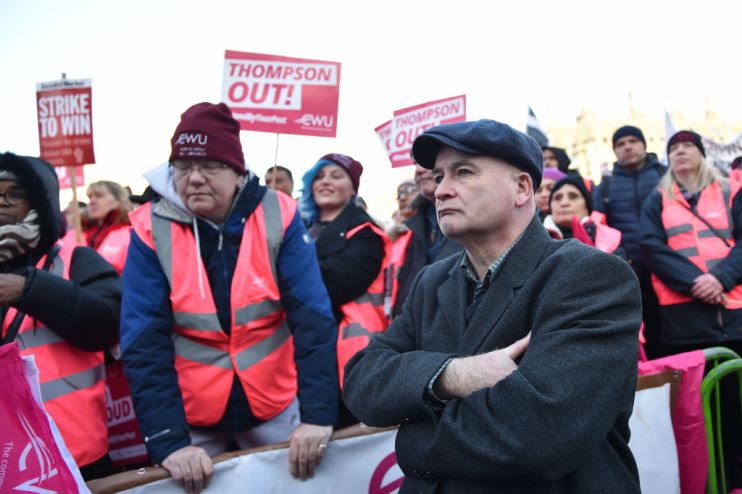Rail workers vote to end strike action in huge relief for Brits before Christmas

Rail workers have voted to accept a pay deal, bringing to an end their involvement in over a years worth of strike action on British rail just ahead of Christmas.
Members of the Rail, Maritime and Transport (RMT) union, which represents signalling staff and train guards, accepted an offer from train operators, which includes a five per cent pay rise for 2022 and 23 as well as a guarantee of no compulsory redundancies.
The deal ensures there will be no RMT industrial action until at least spring next year. However ASLEF, which represents train drivers, is still planning a series of rolling walkouts for the week between 2 and 9 December.
General Secretary Mick Lynch said: “Our members have spoken in huge numbers to accept this unconditional pay offer and no compulsory redundancies until the end of 2024.”
“I want to congratulate them on their steadfastness in this long industrial campaign.”
The RMT and operators are still yet to agree a pay rise for the current fiscal year, dragging talks into 2024.
Lynch said: “We will be negotiating further with the train operators over reforms they want to see. And we will never shy away from vigorously defending our members terms and conditions, now or in the future.
“This campaign shows that sustained strike action and unity gets results and our members should be proud of the role they have played in securing this deal.”
A spokesperson for Rail Delivery Group said: “This welcome vote from RMT members will unlock a pay rise for our people, and means that fair agreements have now been reached with three out of the four unions involved in the recent industrial dispute.”
But the group warned of further disruption to passengers ahead of train drivers’ action. “Unfortunately, the ASLEF leadership’s decision to call further industrial action means passengers still face disruption between 1-9 December, despite an offer remaining on the table which would see basic driver salaries increase from £60k to £65k for a four-day week.”
“We want to reach a fair agreement which will get more trains running on time and put the railway on a sustainable footing, at a time when taxpayers are contributing an extra £54m a week to keep services running post covid.”
The RMT represents workers from Avanti West Coast, C2C, Chiltern Railways, Cross Country, GTR, Great Western, Greater Anglia, LNER, Northern Trains, South Eastern Trains, South Western Railway, Island Line, Transpennine Express, West Midlands Trains and East Midlands Railways.